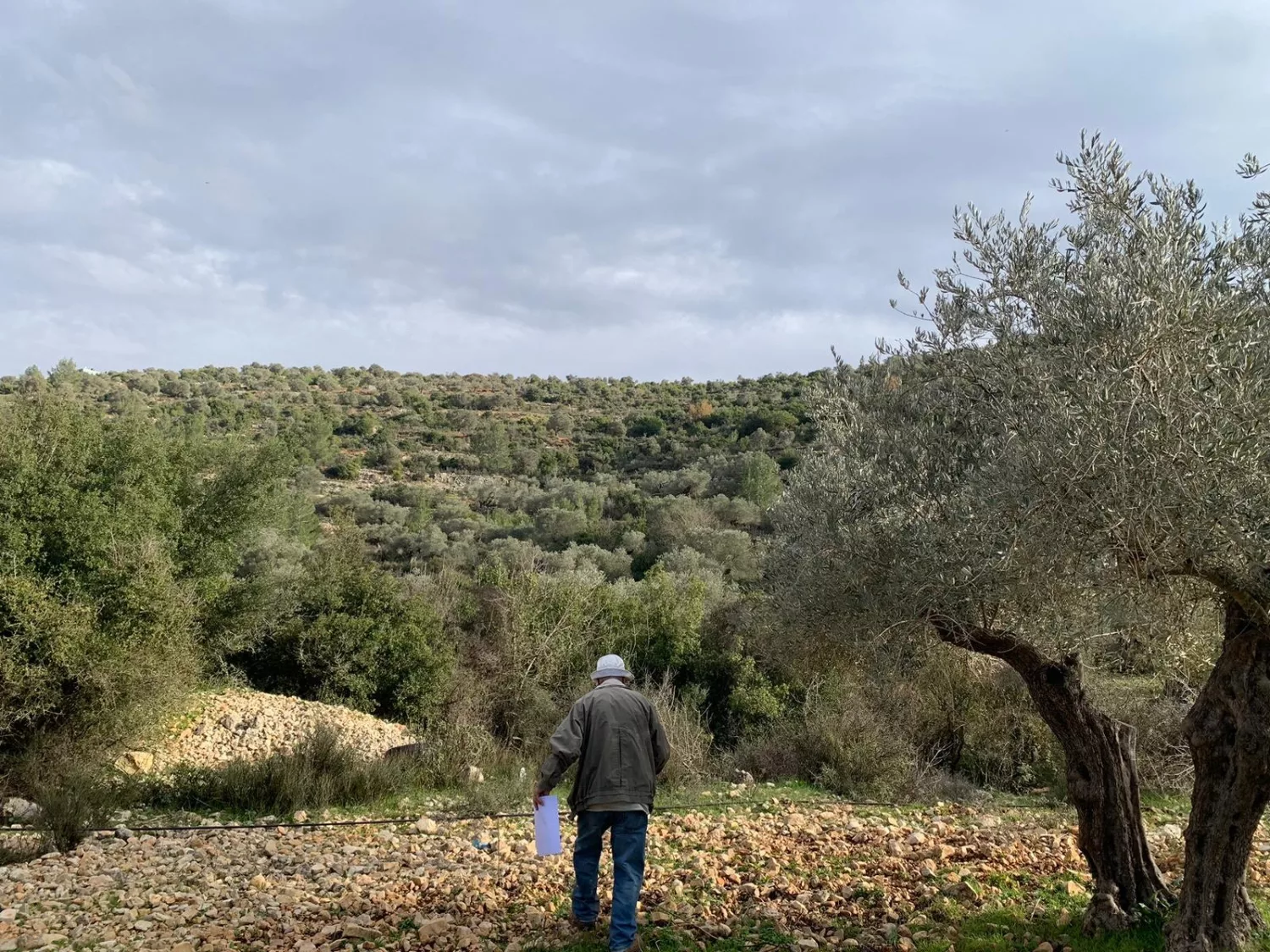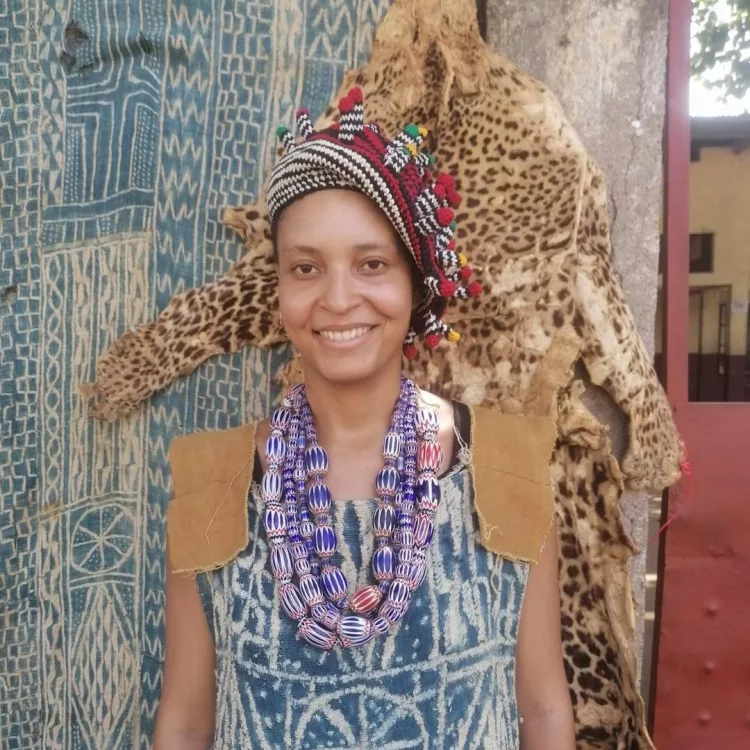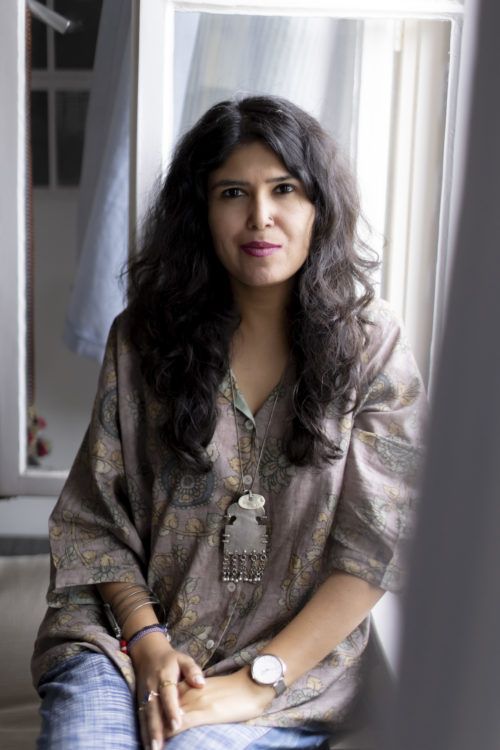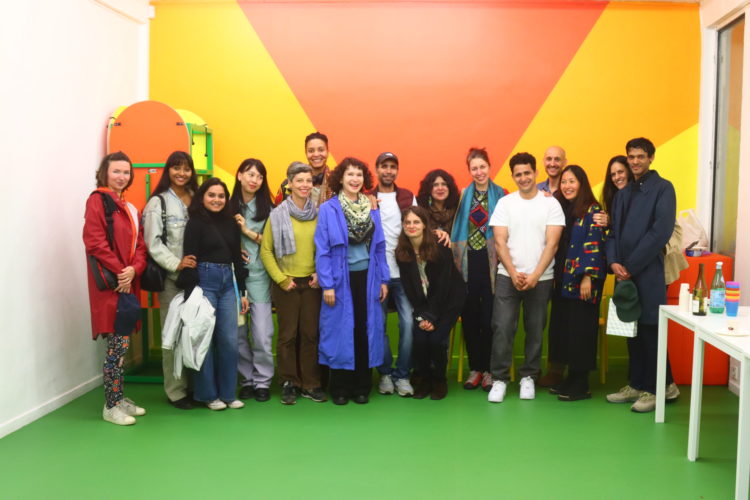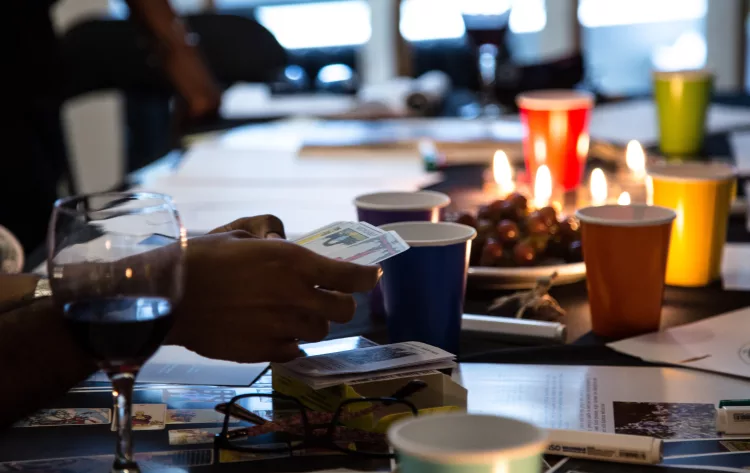Events
Initial land for BastaLand in Jifna, Palestine. Image courtesy of Hussam Gosheh- Basta Theatre
21, avenue du Maine
75015 Paris
Montparnasse – Bienvenüe metro station, Exit 2, Lines 4, 6, 12 and 13
Villa Vassilieff is accessible to visitors using wheeled devices or who have mobility difficulties thanks to special facilities (access ramp, adapted toilets, and a lift).
In addition, several reserved parking spaces are available close to the Villa Vassilieff:
• in front of 4 rue d’Alençon, 75015 Paris
• in front of 7 rue Antoine Bourdelle, 75015 Paris
• in front of 23 rue de l’Arrivée, 75015 Paris
Consult the map of adapted parking spaces in Paris here.
For its third edition as part of the “Care as Methodology” program, the Initiative for Practices and Visions of Radical Care is pleased to present Poetics of Tasting, developed in collaboration with the INLAND, Basta Theatre, and La Famille Rester.Étranger collectives. This program was conceived at the invitation of AWARE: Archives of Women Artists, Research and Exhibitions.
Poetics of Tasting explores culinary memory as both a site of cultural transmission and an active practice of resistance. Recipes are approached not merely as instructions but as alternative repositories of knowledge — forms of embodied epistemology that carry within them histories, gestures, and local memory that transcend written language.
Audiences are invited to engage with these narratives through sensation and performative dialogue with the participating collectives. Sensory experiences such as tasting, touching, and smelling become integral to understanding how culinary knowledge encodes the affective and social conditions under which food is prepared, shared, and remembered. Recipes operate as living archives, transmitting cultural practices across generations and geographies, sustaining communal identities even in contexts marked by dispossession, displacement, or exile. The transmission of taste — through texture, scent, temperature — forges a sense of community, particularly in the context of physical absence. The inability to cook or share a meal, as experienced by communities living in forced isolation, disrupts the continuity of cultural memory and sense of belonging.
Pratical information
Tuesday, May 13, 2025, from 7:00 pm to 8:00 pm
Multilingual event.
Over the past fifteen years, the INLAND collective has cultivated long-term relationships between agricultural practices and artistic experimentation in rural Spain, through activities ranging from beekeeping and cheese-making to publishing and independent printing.
Basta Theatre, an independent artistic collective founded in Jerusalem in 2015 by emerging artists and activists, has created a platform exploring the intersection of performative practices and culinary processes. Their collaboration led to the creation of BastaLand, a hybrid space for cultivation, ecological restoration, and performative experimentation. Cared for by Basta Theatre members, it welcomes practitioners from Palestine.
La Famille Rester.Étranger is a living, evolving collective that took shape in Paris in 2014 through encounters between artist Barbara Manzetti and a Rromani family. The group expanded in 2016 with the arrival of young Sudanese asylum seekers, who met during French classes at the Bureau d’accueil et d’accompagnement des migrants. Together, they explored the boundaries of language and belonging, developing a shared performative form of writing rooted in lived experience and culinary memory – exchanging stories through dishes, their names and ingredients that cross the world. Over time, these connections transformed into lasting bonds and a common space in Saint-Denis.
The Initiative for Practices and Visions of Radical Care, started in 2020 in the Greater Paris region, is a diverse group of practitioners of arts, crafts, philosophies, healing and therapy coming from vastly spread geographies. Neither a classical collective nor a rigid structure, the Initiative is researching and reinventing modes of sustainable institutionalism. Based on friendships as well as professional bonds, it functions as an ecosystem and fosters interdependence and solidarity beyond identity. The focus on care is enacted as a flow of activities that nurture individuals and sustain social, environmental and political bonds, focusing as much on processes and methods as on outcomes. Through fluid artistic and curatorial ventures, the Initiative embraces the languages, energies, histories, landscapes, bodies, and materials that reflect a non-extractive and sensitive relationship to the human and non-human alike.
